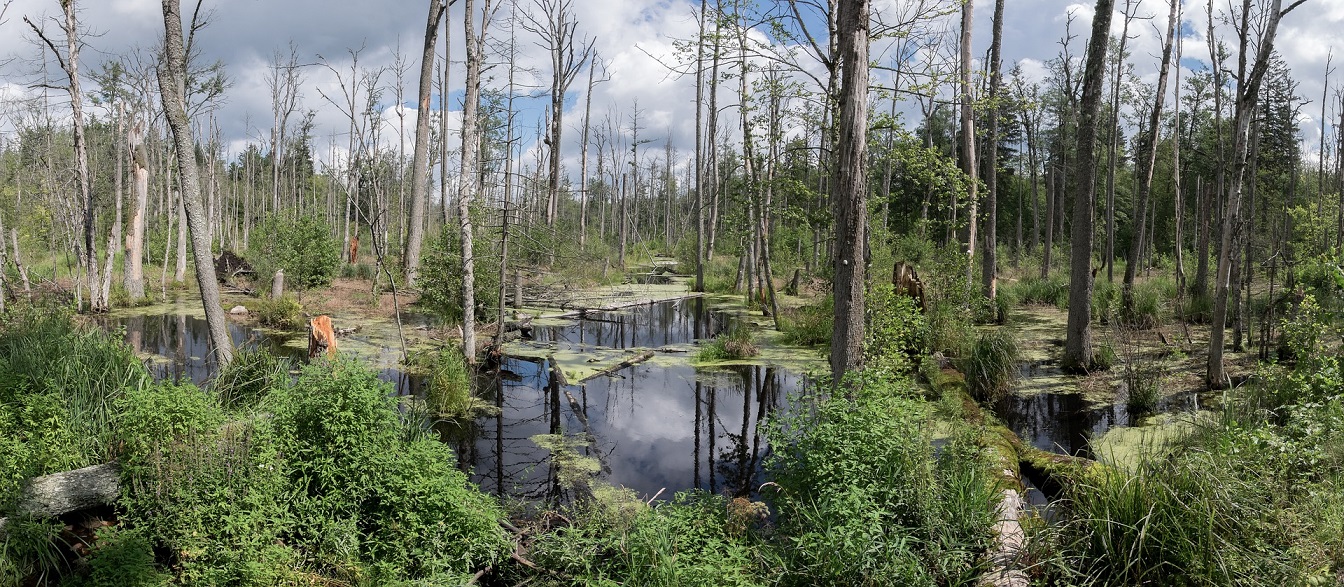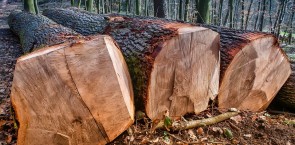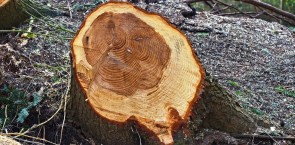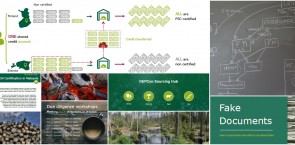
The never-ending conflict around the Białowieża forest has escalated to the level that it may challenge the certification of all state forests in Poland. It involves an injunction issued by the European Court of Justice, eurosceptic Polish authorities ignoring the injunction and very upset environmental groups trying to block the logging.
Białowieża forest is Europe’s largest remnant of primeval forest. Part of it is in Poland and part in Belarus. On the Polish side, 17% of it is protected as Białowieża National Park where all logging is banned; it is listed as a UNESCO World Heritage site and protected as a Natura 2000 site.
The conflict is far from new – it has been going on for centuries. Nature conservationists say they are trying to protect some of the most pristine forest in Europe and accuse the forest authorities of being motivated to ensure a supply of commercial timber from the area. Changes in the political landscape and forest managers have made the conflict wax and wane over the years. However, the current conflict has escalated to a level not seen before.

In spring last year, the Polish Environment Minister (who’s a forester by background) tripled the amount of logging that is allowed in the forest: the government claimed that the logging is needed to control an outbreak of spruce bark beetle, fight the risk of forest fires and make the forest safe to drive through.
UNESCO, EU officials and environmental groups protested the increase in the logging. They allege that the ongoing logging isn’t about controlling pests as it isn’t limited to infested spruce trees, and that bark beetle attacks are a natural phenomenon that do not need human interference. Our own staff have observed that the logging includes healthy trees, trees that used to be infested by bark beetle but are no longer, as well as species other than spruce.
The European Commission took the case to the European Court of Justice, alleging that the logging breaches the EU Habitats Directive and Bird Directive. The European Court of Justice is the highest court in the EU. It ensures that EU law is upheld and has the power to issue multimillion Euro fines and even to stop governments voting in the Council. Decisions of the Court are binding on EU member states, including interim decisions like this one.
On 27 July 2017, the court granted the injunction: they ordered Poland to temporarily cease all logging in Białowieża unless needed on health and safety grounds. The logging stopped for a day but then resumed. Indeed, the Polish government stated that the logging would continue, putting Poland on a collision course with the EU court.
On 20 November 2017, the EU court ordered Poland to stop logging immediately in Białowieża forest and warned Poland that it will face penalties of at least EUR 100,000 per day over illegal Białowieża logging.
Even though the area where the harvesting is taking place is not FSC-certified, the case may have huge implications for the future of FSC certification in state-owned forests in Poland. All FSC-certified operations, including related companies under the same ownership, need to comply with the FSC Policy for Association. This policy determines the organisations that FSC will work with. It includes, among other things, that it will not work with any organisation that is directly or indirectly involved in illegal logging, the trade in illegal wood or forest products, and the destruction of high conservation values. This policy covers cases where the wood is not used for any FSC-certified products.
There seems little doubt that the logging activities violate both of these FSC requirements on legality and high conservation values. As the logging is conducted by the Polish state forest, if FSC were to find there to have been a violation of their policy for association, they may disassociate with the entire state forest operation in Poland, which could have huge implications for the supply of certified material. Poland is an important country for forestry with nearly 7 million ha of certified forest and more than 1,500 Chain of Custody certificates.
There is also a possibility that FSC disassociates from companies sourcing wood from Białowieża, whether or not they are using it as Controlled Wood.
FSC updated its risk guidance for the FSC Controlled Wood system and concluded that wood from the area under dispute cannot be used as FSC Controlled Wood. If certificate holders ignore this guidance, it can be considered as a major violation of the FSC requirements and result in suspension of the certificate holder. Outside of updating the controlled wood risk for the Bialowieza forest area, FSC has not assessed this case against the Policy for Association.
We have informed our FSC clients that source from the region about the risks they run in case they source wood from the area under dispute.
Photos courtesy of Robert_z_Ziemi and frolicsomepl
Further reading:
- ClientEarth's article on the EU Court results: https://www.clientearth.org/top-eu-court-polish-authorities-will-fined-least-e100000-day-illegal-logging-continues-bialowieza-forest/
- Interim decision of the European Court of Justice (in Polish), available via https://www.clientearth.org/wp-content/uploads/2017.07.27-C-441-17R-ordonnance-provisoire-PL.pdf
- Client Earth’s view on the injunction https://www.clientearth.org/eu-court-imposes-emergency-ban-logging-bialowieza-forest/
- Polish state-owned logging company’s view on the case (in Polish) http://www.lasy.gov.pl/pl/informacje/puszcza-bialowieska
- Articles in The Guardian on the case https://www.theguardian.com/world/2017/jul/31/poland-continue-logging-biaowieza-forest-despite-eu-court-ban and https://www.theguardian.com/environment/2017/may/23/worst-nightmare-europes-last-primeval-forest-brink-collapse-logging





